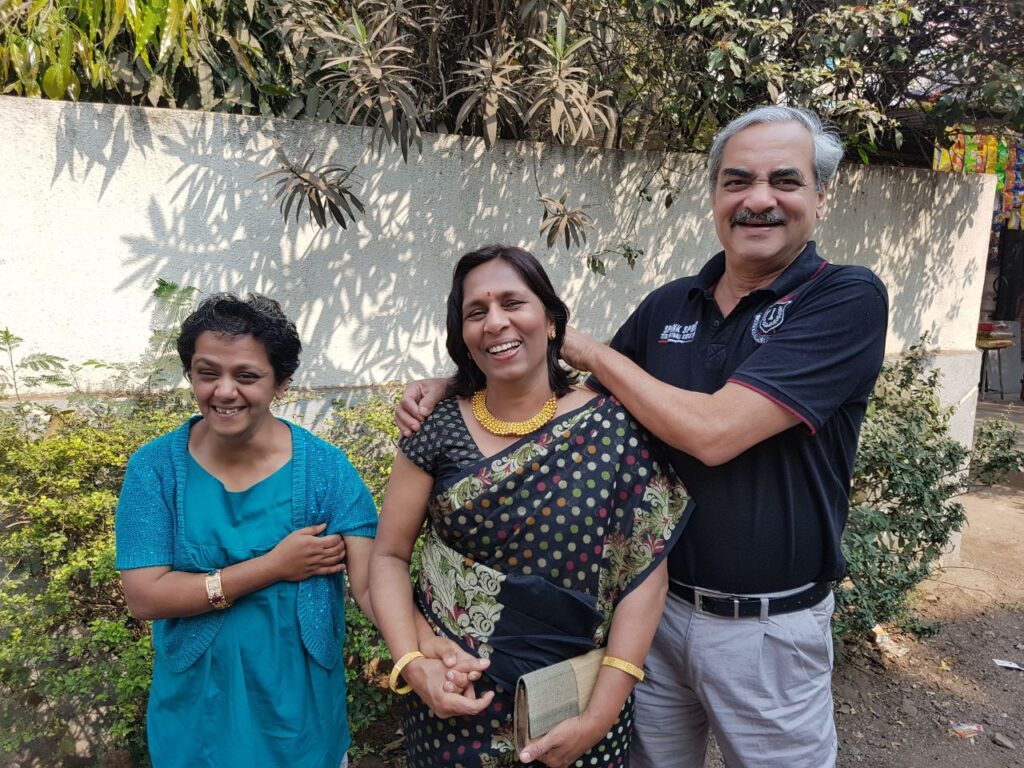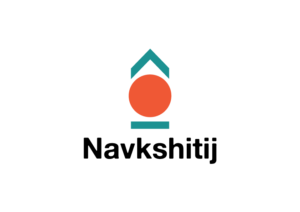(By Dr. C. R. Desai, President, Navkshitij
Reading Time 6–7 mins)
Blog 1

NEELIMA and I, both post-graduates in medicine, got married in 1982. We set up practice and started the regular struggle of a middle-class family; taking loans, digging holes and running fast to fill them. In 1984, we were blessed with our first daughter, Noopur, a pure bundle of joy. Life was an uninterrupted picnic. In 1987, we were blessed with our second daughter, Aditi and the world came crashing down on us. Aditi was a blue baby, with a compromised blood supply to the brain. It took us some time to realise that she was Intellectually Disabled; it took us almost 14 years to accept it.
We ran from pillar to post; Modern Medicine, Ayurveda, Acupressure, Kinesiology… Nothing seemed to work. We then went to temples and did poojas. We tried literally everything from Allopathy to Tirupati. We then took it up as a mission. We were ready to do what it took to make Aditi normal. Ayurveda massage, physiotherapy, occupational therapy, dance therapy, music therapy. We had read a book What To Do About Your Brain-Damaged Child by Glen Doman. We made hundreds of cards and kept showing her these cards every day; God knows what she understood, but we didn’t relent.
Inclusivity: The first attempts
We put her in a nursery where she enjoyed herself, but at age six she was just too old to belong there.
So we put Aditi in an inclusive normal school so that she would spend time with normal children. We thought she would learn to be normal. The effect was quite the opposite. She became painfully aware of the fact that she was abnormal. Her problem of bed wetting resurfaced. She started throwing tantrums. She learnt that the only way to stop people correcting her at every opportunity was to yell loudly and throw tantrums. Her behavioural issues multiplied. We quietly withdrew her from the school. She now started going to a special school. Our efforts with all therapies continued.
We took her wherever we went. We took her on picnics, treks and long holidays. Noopur just loved Aditi; of course, Aditi tried her best to irritate her—that was her attention-seeking behaviour. Our family was a package deal. We wouldn’t go to any function without Aditi. It separated the grain from the chaff. Many of our friends distanced themselves from us. Those we were left with became Aditi’s friends for life; they had accepted her as she was.
Realisation and acceptance
I remember that day so clearly. Neelima was trying to read out a story to Aditi. Aditi was trying her best to irritate her, frustrating all her efforts. It was taking a toll on both. I could sense the tension mounting. That is when I had a flash of understanding. I called Neelima out, put an arm around her shoulders and said “Aditi has accepted all of us as we are; why can’t we as parents extend her the same courtesy? Why can’t we just accept her as she is? Why are we trying to make her like us? We are trying to make her do what we want. Can we take a step back and try to find out what she wants?” There were tears in Neelima’s eyes. We stayed like that for some time; the message was sinking in. Then she started sobbing. “We have been torturing this girl for fourteen years trying to make her like us.” I kept quiet. After some time, I could feel her breathe a sigh of relief. She shook her head and said, “Not anymore.” That was the day we truly understood our daughter; life changed for all of us.
We went back into the room; Aditi was looking at us quizzically. We gave her a big hug, a group hug; tears streaming down our eyes. At first, she was taken aback, a bit confused and then she burst into a smile. She broke away from us and started dancing, running all over the room and laughing loudly. “Oh my God! You have finally understood what I have been telling you for years. Please let me be myself, I am good as I am.” There was no trace of accusation in her eyes. She was plain relieved that we had given ourselves the liberty of seeing the world through her eyes.
We, as parents, want our children to study, get a degree, get a job and start earning. We want them to get married, set up a family, have children and lead a normal life. With help from society, most differently-abled people like those with physical or visual handicaps or hearing impairment can be trained to get normal jobs and fulfil the formula for normal people. They can be included and absorbed into the normal society with impairment-inclusive buildings improving accessibility. Advances in computer technology have made it possible for the visually impaired and hearing impaired to get respectable jobs in banks and the IT industry. It is their right to get higher education and deserving jobs, and lead a normal life. Many corporates under their CSR are a big help in the effort to rehabilitate the differently-abled. The efforts of the whole society are moving towards an inclusive world where the differently-abled are offered an equal opportunity to use their other abilities to create a new life for themselves and be included as a normal person in society.
Inclusivity is not a one-size-fits-all solution
This isn’t, however, a one-size-fits-all solution, especially when it comes to the intellectually disabled. We need a different understanding and definition of rehabilitation and also of inclusivity. The world of an ID is quite different. We have to see the world through their eyes to see what they would want for themselves.
It is said that when you go fishing, you should use what the fish likes as bait, not what you like. Let us make an effort to find out what the IDs like. Welcome to the world of the Intellectually Disabled.
Be A Part Of Our Spread Happiness Movement Bringing Happiness: Lighting Up The Lives Of Special Friends Donate– Your contribution directly supports our programs and services, ensuring that persons with intellectual disabilities (PwIDs) receive the care and support they deserve. Register- Join our community as a volunteer or supporter to stay updated on our initiatives and opportunities for involvement. Spread The Word- Share our mission with others to raise awareness and advocate for the rights of PwIDs, amplifying the impact of our work. #BringingHappiness #LifeatNavkshitij #LightingThePath
